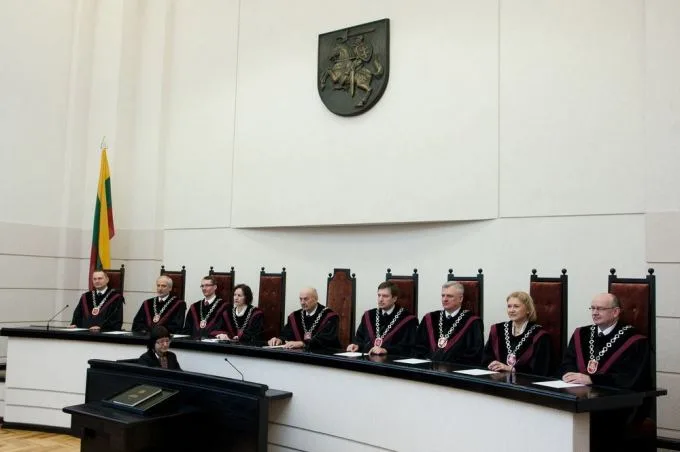The Constitutional Court in Lithuania has ruled against the country’s 2009 ‘gay propaganda’ law, which imposed a ban on “promoting” same-sex relationships to children. The court deemed the law unconstitutional.
In a ruling delivered last month, the highest court in Lithuania found the country’s so-called ‘gay propaganda’ law unconstitutional.
In a ruling delivered on December 18, the Constitutional Court struck down the anti-LGBTQ+ provisions of the Law on the Protection of Minors Against the Detrimental Effect of Public Information. First introduced in 2009, the law was used to ban children’s books featuring LGBTQ+ characters or same-sex relationships, and restricted broadcasting material on LGBTQ+ identities on public television programmes.

the court found that information about diverse family structures and relationships cannot automatically be deemed “inappropriate” for children.
Moreover, it was found that the so-called ‘gay propaganda’ law restricts children’s development into “mature, well-rounded individuals”, which goes against the state’s constitutional duty to ensure “harmonious and comprehensive child development”. The court also ruled that the law fails to respect human rights, dignity, and democratic values of equality, pluralism and tolerance.
Activists in Lithuania had already challenged the ‘gay propaganda’ law before the European Court of Human Rights, which found that the ban violated the European Convention on Human Rights.

In a statement following the Constitutional Court’s ruling, activist group Lithuanian Gay League said: “While direct enforcement of (this) provision decreased in recent years, its presence in law continued to cast a long shadow over Lithuania’s LGBTIQ+ community.
“The provision’s existence created a significant chilling effect, leading to self-censorship among LGBTIQ+ individuals, organisations, and media outlets,” the statement continued. “This contributed to increased minority stress within the community, as individuals and organisations had to constantly evaluate whether their expression, events, or publications might fall foul of the law.
“The decision upholds the constitutional understanding that family, as a protected institution, can be formed on bases other than marriage, and emphasises the importance of providing youth with information that reflects real social relationships and promotes respect for human rights and dignity.”
